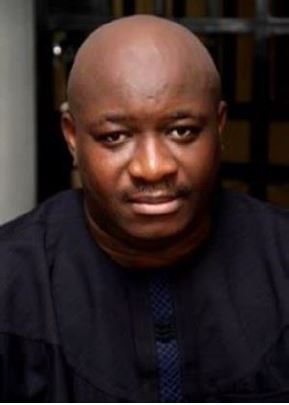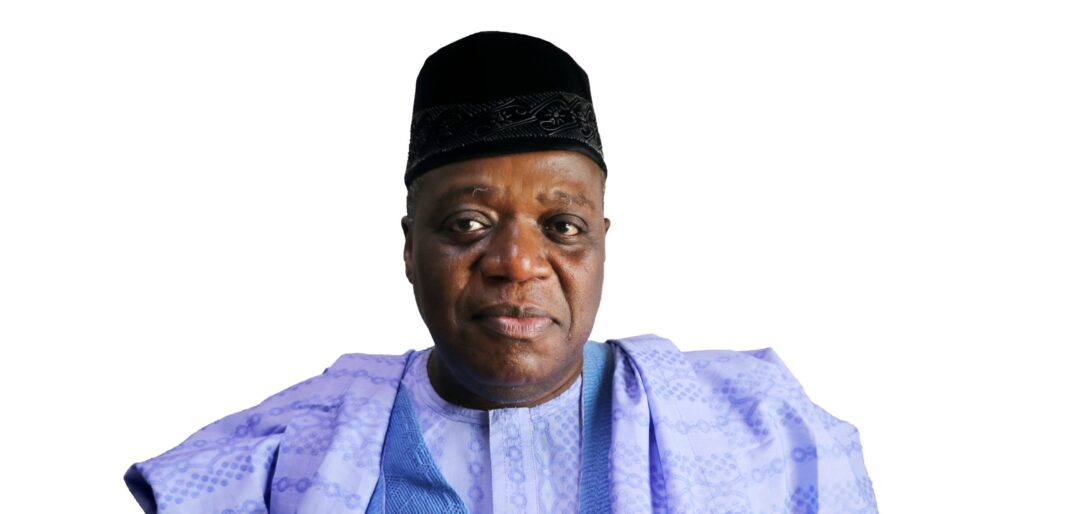On May 10, the Federal High Court in Nigeria’s capital Abuja gave an order of perpetual injunction restraining broadcast watchdog, the National Broadcasting Commission (NBC), from imposing fines on broadcast stations.
Delivering the ruling, Justice James Omotosho held that the NBC, not being a court of law, had no power to impose fines on broadcast stations in the country, and described the commission’s act of sanctioning networks as being “ultra vires.”
NBC, which has been accused of yielding to the demands of the government through its actions over time, has been notorious for handing down heavy fines on networks that air reports or interviews deemed unfavourable to the government.
The Abuja court ruling stemmed from the broadcast watchdog’s action dating back to March 1, 2019, when it imposed a fine of 500,000 naira ($1,085) each on 45 broadcast stations, including government-owned Nigerian Television Authority (NTA) and privately-owned Channels Television, TVC News and African Independent Television (AIT).
Is’haq Modibbo Kawu, the then NBC Director General, claimed that the networks breached the regulator’s code during the electioneering campaign of 2019 by airing content involving “questionable language.”
The regulator did not clarify what it meant by “questionable language.” It threatened to close down any station that contravenes the provision of the code of conduct for broadcast media.
Perturbed by the NBC’s action, media rights organisation Media Rights Agenda (MRA), sued the regulator, seeking a declaration that the procedure of sanctions applied by the NBC was a violation of the rules of natural justice.
Counsel for MRA, Noah Ajare, digital rights and press freedom advocate, said the fines were in violation of the right to a fair hearing under Section 36 of the 1999 Constitution (as amended) and Articles 7 of the African Charter on Human and Peoples Rights (Ratification and Enforcement) Act (Cap AQ) Laws of the Federation of Nigeria, 2004.
The lawyer also sought “an order of perpetual Injunction restraining the respondent [NBC], its servants, agents, privies, representatives or anyone acting for or on its behalf, from imposing fines on any of the broadcast stations or any other broadcast station in Nigeria for any alleged offence committed under the Nigerian Broadcasting Code.”
Ajare held that the fines imposed by the NBC as punishment for the commission of the various offences under its code were contrary to the law and were thereby unconstitutional, null and void.
Justice served
In the judgement delivered on May 10, 2023, Omotosho set aside the N500,000 fines imposed on each of the 45 broadcast stations on March 1, 2019.
He stated that the NBC Code, which gives the broadcast watchdog the power to impose sanctions, is in conflict with Section 6 of the Constitution which vested judicial power in the court of law.
The judge said the court “will not sit idle and watch a body impose fines arbitrarily without recourse to the law,” adding that the NBC did not comply with the law when it sat as a complainant and at the same time, the court and the judge on its own matter.
Omotosho said the Nigeria Broadcasting Code, being a subsidiary legislation that empowers an administrative body such as the NBC to enforce its provisions, cannot confer judicial powers on the commission to impose criminal sanctions or penalties such as fines.
He also said the watchdog, not being the police, “has no power to conduct a criminal investigation that would lead to criminal trial and imposition of sanctions.”
Media rights advocates laud court ruling
Edetaen Ojo, the Executive Director at Media Rights Agenda, the organisation which filed the suit against the NBC, expressed relief that the media rights advocate “has succeeded in putting a stop to the rampant imposition of punitive fines on radio and TV stations by the NBC even when they are simply doing their jobs.”

Ojo described the judgement as a “monumental feat.”
Also, the Nigerian Guild of Editors (NGE) said the judgement “has vindicated the position of the editors that NBC could not appropriate the constitutional responsibility of the judiciary arm of government.”
NGE President, Mustapha Isah, and the General Secretary, Iyobosa Uwugiaren, saluted the lawyers who sued the NBC for testing the “draconian NBC Act.”
“Justice Omotosho’s ruling on May 10, 2023, vindicated our consistent position over the years that the NBC cannot be the accuser, the investigator and the judge on matters relating to alleged breach of the Broadcast Code,” Isah and Uwugiaren said in a co-signed statement.
“Our position has always been that an independent body or institution should be the one to examine any perceived infraction by the broadcast stations, which should be given the opportunity to defend themselves,” the guild added.
Lawyer and press freedom advocate Inibehe Effiong said he had sued the NBC and other parties at the Federal High Court in Lagos, challenging the legality of the imposition of fines on broadcast stations in the country.
“Justice [Ambrose] Allagoa ruled against me,” Effiong tweeted. “I’m happy that Justice Omotosho in Abuja has taken the opposite position.”
MFWA welcomes ruling
The Media Foundation for West Africa hails the court’s ruling, hoping that it would prevent tyranny long exhibited by the broadcast regulator.
MFWA had on several occasions documented events detailing the misuse of authority by the watchdog.
On October 26, 2020, the NBC fined Arise News, Channels Television and Africa Independent Television, all privately-owned, to the tune of 3 million naira ($6,500) each for what the regulator described as the stations’ “unprofessional coverage” of the #EndSARS [anti-police brutality] protests in Nigeria.
In April 2021, the NBC again fined Channels TV and private radio station Inspiration FM 5 million naira each ($10,800) for airing an interview with a spokesman for the proscribed secessionist group, Indigenous People of Biafra (IPOB).
On August 24, 2021, the regulator again queried Channels Television for airing an interview with Samuel Ortom, the governor of Benue State in north-central Nigeria. In the interview, Ortom made several comments critical of President Muhammadu Buhari’s handling of the persistent herdsman-farmer conflict, which has led to the loss of thousands of lives.
On August 19, 2022, the NBC revoked the licences of 52 television and radio stations, including AIT, and Silverbird Television, due to the stations’ indebtedness to it amounting to about 2.6 billion naira ($5.7 million).
However, a federal high court in Lagos on August 29, 2022, countered the regulator’s action in a judgement.
On March 27, 2023, the NBC again slammed a fine of 5 million naira ($10,800) on Channels TV, over an interview the network held with Datti Baba-Ahmed, the vice-presidential candidate of the Labour Party in the presidential election of February 25, 2023.
In the interview, Baba-Ahmed claimed that the presidential election was rigged and said whoever swears in President-elect Bola Tinubu of the ruling All Progressives Congress (APC) party “has ended democracy in Nigeria.”
NBC blamed Channels TV for allowing Baba-Ahmed to make the comments it [the regulator] considered inflammatory, saying it had constantly engaged Channels TV to consider public interest before broadcasting any programme.
In view of the repressive nature of the NBC’s oversight of the media sector, the MFWA hails this milestone judicial intervention and applauds MRA for successfully standing up to regulatory tyranny.





